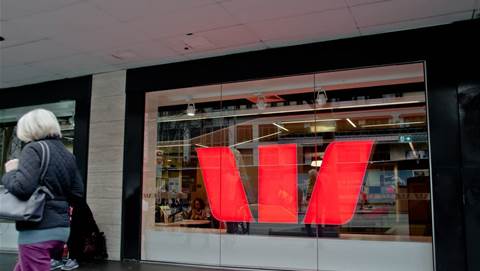The Governor of the Reserve Bank of Australia (RBA), Philip Lowe, has issued the strongest warning yet that if Australia’s big banks and credit card schemes don’t address ongoing technology outages and upgrade lethargy, the central bank will intervene through regulation.

In a key speech the Australian Payments Summit in Sydney on Monday morning, Lowe made it clear that patience has now run out over collective foot-dragging within the Big Four banks over the slow pace of upgrades needed to plug in both the New Payments Platform and least cost transaction routing to push down merchant fees.
“Over recent times, there have been a number of serious operational incidents that have interrupted the payments system. On some occasions these have been caused by problems with the telecommunications companies and at other times by problems at the banks,” Lowe said.
“We all need to do better here. As we rely less on cash, outages affecting retail transactions can have a significant impact on businesses and individuals. So continued effort needs to be made by all participants in the payments system to reduce operational problems. If this does not happen, then it is possible that the Payments System Board could consider setting some standards.”
The threat to use the Payment Systems Board, which sets the rules for how banks transact electronically and digitally, to set down mandates is a potent one because it opens the door to the government holding institutions to minimum standards and naming and shaming them if they fail.
It also logically puts banks on notice that they could soon be liable to pay out far more compensation for tech blunders that hit businesses and consumers under what is shaping up to be a more formal uptime performance structure that resembles a national service-level-agreement.
However the RBA Governor candidly acknowledged the central bank itself was recently hit by its own outage that knocked out its Fast Settlements Service.
Lowe said the glitch was caused by “problems with a routine fire test also saw a number of RBA core systems unavailable for some hours.”
Heel dragging by banks implementing functionality offered by the New Payments Platform also copped a serve, with Lowe emphasising that there would be no relent in pressure to get the RBA-backed real time system running in all institutions.
“A number of the major banks have…been slower than was originally expected to roll out NPP functionality to their entire customer bases,” Lowe said.
Banks have now been told they must say when they will have the NPP plugged in, operating and available or receive another helping hand.
“Given the slow pace of roll-out by the banks, and the prospect of delays for additional overlay services, I recently wrote to the major banks on behalf of the Payments System Board seeking updated timelines and a commitment that these timelines will be satisfied,” Lowe said.
“It is important that these commitments are met.”
Another item on the RBA’s late homework list is the implementation of least cost routing that allows merchants to dictate what rails payments made to them ride to help avoid fee gouging by banks and credit card schemes via default settings on payment terminals and merchant acquirer accounts.
In simple terms, the reforms allow merchants to make the call as to whether a tap-and-go payment goes routes via the cheaper Eftpos cheque and savings route as opposed to rails run by card schemes like Mastercard and Visa – an important difference now that Eftpos has contactless card functionality.
Choice of routing issue is set to become a major access and equity issue for transport authorities in NSW and other states prepare to accept contactless payment cards in addition to contactless electronic tickets across their networks because many commuters may not have a Mastercard or Visa product in their physical or virtual wallets.
“Some acquirers have already completed the necessary work and are attracting new merchants. Others, including the major banks, made commitments earlier in the year regarding the timetable for this work to be completed. Partly on the basis of those commitments, the Payments System Board made a decision not to regulate,” Lowe observed, not uncritically.
“Since then, I regret to say there has been slippage by some, who have cited technical problems. It is important that the banks get back on track here. A failure to deliver on commitments or to provide the payment services that the community needs will inevitably lead to calls for further regulation.”





.png&h=140&w=231&c=1&s=0)



_(26).jpg&w=100&c=1&s=0)

 iTnews Executive Retreat - Security Leaders Edition
iTnews Executive Retreat - Security Leaders Edition












_(1).jpg&h=140&w=231&c=1&s=0)



